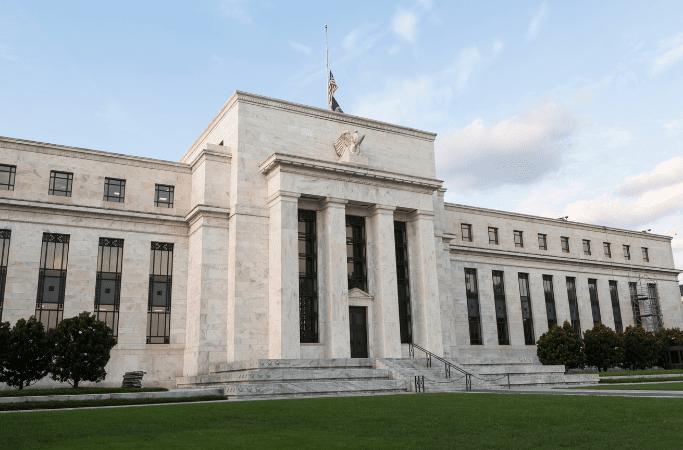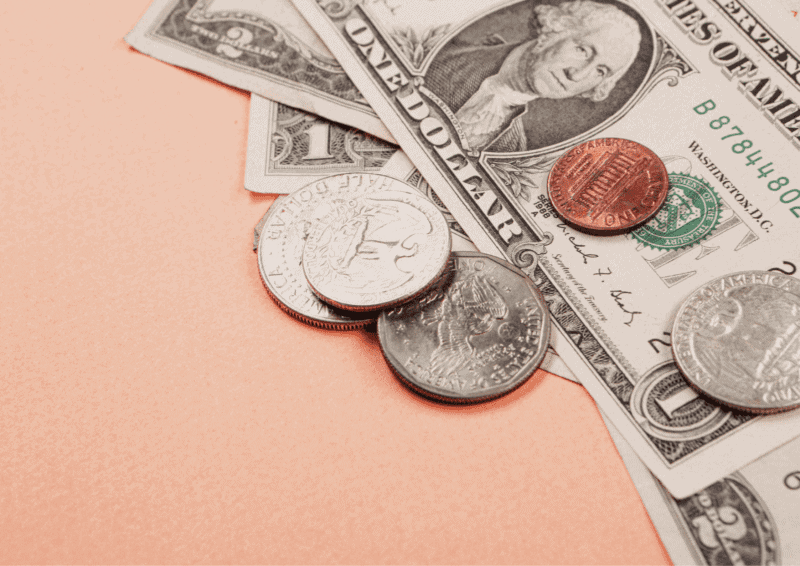In today’s world economy, currency wars are like a game where countries play to get ahead in global trade. This tactic of making their own money cheaper compared to others is a big deal. It affects not just the countries doing it but also shakes up the places where money from different countries is traded. Whether you’re someone looking to invest, a trader trying to make a profit, or a government official making big decisions, understanding how these currency wars impact the trading of currencies is really important.
Getting to grips with the idea of currency wars and how they shake up Forex trading matters to a lot of people. From investors putting their money into different markets, traders looking for the next big score, to policymakers who decide how a country handles its money, it’s key to know the moves in this complex game of international finance. This knowledge isn’t just about the numbers; it’s about seeing the big picture and making smart moves in a world where money talks.
What Are Currency Wars?

In the middle of a currency war, or what some call competitive devaluation, there’s a deliberate move by a country’s central bank to make its own money worth less. The big idea behind this move is to help the country’s economy grow. By making their money cheaper, they make the stuff they sell to other countries cheaper too, which can mean they sell more abroad and buy less from outside. It’s a way to get a leg up in the global market.
But, when one country decides to go down this path and drop the value of its money, it often causes a domino effect. Other countries might do the same to protect their own economies, leading to a back-and-forth that can mess with global trade and the overall economic stability of the world. This tug-of-war with money values isn’t just a one-country issue; it’s a global concern that can make the economic waters choppy for everyone involved.
Also Read: The Impact of Political Instability on Forex
The Role of Central Banks and Monetary Policy

At the center of what we call a currency war, or making your country’s money worth less on purpose, is a big move by a country’s central bank. The idea here is to give the country’s economy a boost. By making the money worth less, things made in the country become cheaper for others to buy, which can lead to more things being sold abroad and less buying from overseas. But, there’s a catch. When one country decides to make its money worth less, other countries might do the same. This can start a chain reaction that messes with trade and the stability of the world’s economy.
Central banks—like the Federal Reserve in the U.S., the European Central Bank, and the Bank of England—have a big part to play in how money is traded around the world. They can change how much their money is worth compared to others by doing things like cutting interest rates or using policies that make more money available. These actions are meant to help the economy grow by making it easier to borrow money and by encouraging spending. But, these moves can also cause friction between countries, as what’s good for one country’s economy might not be good for another’s.
Effects on Forex Trading
For Forex traders and foreign investors, the rough seas of currency wars come with their own set of highs and lows. The fast and frequent changes in exchange rates that come with these economic tussles open the door to potentially big wins. This is because even small shifts in currency values can turn into significant earnings if you play your cards right. But, with the chance for rewards comes a higher risk of getting it wrong. The same quick changes that can make you money can also lead to big losses.
To sail through these stormy conditions, traders and investors need to keep a sharp eye on what the world’s central banks are up to and how they’re tweaking their monetary policies. These actions directly impact currency values and, by extension, the Forex market. Staying ahead of these changes means you can better predict which way the wind is blowing and adjust your sails accordingly. Without this knowledge, navigating the unpredictable waters of currency wars becomes a lot harder.
Impact on Global Economy and Trade

Currency wars don’t just shuffle the deck in the world of finance; they can really shake up the entire global economy. When a country decides to make its currency cheaper, it’s like putting a “sale” sign on all its products to the rest of the world. This can indeed help sell more goods abroad, giving the country’s economy a leg up. However, this move can make other countries feel the pinch, pushing them to set up trade barriers like tariffs and capital controls to shield their own markets. These reactions can slow down the flow of goods and money between countries, putting a brake on global trade and growth, and even pushing prices up all around.
The domino effect of a currency war can lead to a less connected world economy, where every country tries to protect its turf. This might sound good for one country in the short term, but it’s a risky game. Trade wars that sprout from currency devaluations can make products more expensive and harder to get, hurt businesses that rely on global markets, and generally make the world a pricier place to live in. This can slow down the economic engine worldwide, making it tougher for everyone to grow and prosper.
Competitive Devaluation and Its Consequences

Competitive devaluation is a bit like everyone running downhill; it might seem like a quick way to get ahead, but it’s risky and can end badly for everyone involved. When countries repeatedly try to undercut each other’s currency values, it’s not just a simple matter of making exports cheaper. This can cause major currencies to swing up and down unpredictably, which muddies the waters for anyone trying to invest across borders. The uncertainty can scare off people with money to invest, as they struggle to figure out what their investment will really be worth in another country’s fluctuating currency.
This erratic dance of currency values doesn’t just affect the big players in the investment world. Overseas investors, big and small, might start thinking twice before putting their money into countries that are seen as manipulating their currency. After all, if the value of the money itself becomes a gamble, the risk might not seem worth it. This retreat can lead to less foreign investment, which is often a vital ingredient for economic growth, especially in countries looking to attract new businesses and projects. In the end, the strategy of devaluing currency to gain an edge might backfire, leaving everyone in a worse position than when they started.
Also Read: The Effect of Currency Devaluation on Forex
The Strong Dollar Policy and Global Reactions

The strong dollar policy is a key piece in the puzzle of currency wars, especially when it comes to the role of the United States on the global stage. A beefy dollar makes American goods more expensive to the rest of the world, which can slow down U.S. exports. However, this same strength turns the dollar into a magnet for foreign investors looking for a safe place to park their money. It’s a double-edged sword: on one side, a strong dollar can mean less competitive prices for American products abroad, but on the other, it reinforces the country’s appeal as a financial safe zone.
This balancing act has sparked debates, particularly during the tenure of President Donald Trump, whose policies sometimes added fuel to the currency war fire. The desire for a strong national currency isn’t unique to the U.S.; most nations strive for it as a sign of economic health and a lure for investment. Yet, the American approach, especially under leaders who push hard on keeping the dollar dominant, can strain relationships with other countries. These nations often see their own economic strategies complicated by the towering presence of a strong dollar, making international financial diplomacy a tricky business.
Looking Forward: The Future of Currency Wars
As the dynamics of global currency wars shift, the world of Forex trading transforms alongside it. The landscape of finance is in a constant state of flux, reflecting the ever-changing strategies of nations grappling with how to bolster their economies. Recent economic research points to a growing consensus: countries might need to explore alternative paths to prosperity that don’t rely on the risky game of currency devaluation. This approach not only requires innovative thinking but also a move away from competitive tactics that can lead to instability in international markets.
In this evolving scenario, collaborative efforts between major economic players like the European Union and China signal a potential shift towards more cooperative financial strategies. By working together, these entities are exploring new ways to maintain stable exchange rates, which could foster a more predictable and robust global economic environment. Such partnerships could set the stage for healthier economic relationships worldwide, emphasizing mutual growth and stability over the uncertainties of competitive devaluation. This approach might not only redefine Forex trading but could also lead to a more interconnected and resilient global economy.
Conclusion
Currency wars throw a wrench into the gears of international financial stability, affecting a wide array of elements from exchange rates to the overall health of global markets. These economic skirmishes can quickly alter the financial landscape, making it vital for those involved in Forex trading to keep their fingers on the pulse of the latest developments. The volatility introduced by currency wars demands a keen awareness of not just the immediate fluctuations in currency values, but also a deeper understanding of the underlying factors driving these changes.
For Forex traders, this means that staying up-to-date with economic research, central bank policies, and global economic trends is more than just a best practice—it’s essential for survival in a competitive arena. Knowledge of how central banks are likely to react to economic shifts, or insight into upcoming economic policies, can offer traders a critical edge. Given the complex interplay between different countries’ economic strategies, a comprehensive grasp of the global economic landscape is indispensable for navigating the tumultuous waters of currency trading effectively.
FAQs
What are currency wars?
Currency wars happen when countries compete to lower their currency value to boost exports and gain a trade advantage. This can lead to tensions and instability in global markets.
How do currency wars affect Forex trading?
Currency wars make Forex trading more volatile, creating both opportunities for profit and risks of loss. Traders need to stay informed about central bank actions and global economic trends to navigate these changes successfully.
Can currency wars lead to global economic issues?
Yes, currency wars can lead to global economic issues, including trade wars, reduced global trade, and increased inflation, as countries impose tariffs and controls in response to devaluation tactics.









